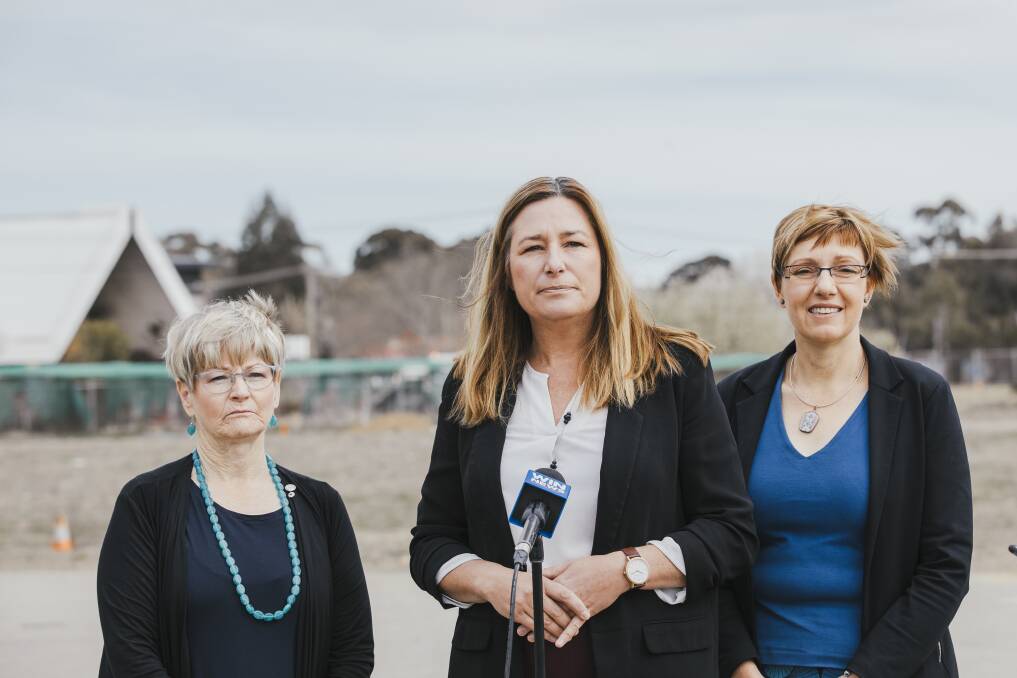Rough sleepers will be moved into permanent housing under a new program aimed at ending street homelessness in the nation's capital.
Subscribe now for unlimited access.
or signup to continue reading
Housing Minister Yvette Berry on Friday launched the program, which will see the ACT government partner with welfare groups CatholicCare and St Vincent de Paul to tackle cases of chronic homelessness through a "housing first" approach.

Under the model, which is used in the US and cities in Europe, rough sleepers are moved straight into independent, long-term housing, rather than progressed through levels of temporary accommodation.
As part of a two-year pilot, 20 people currently living on Canberra's streets will be moved into an existing Housing ACT property.
CatholicCare will offer ongoing "wrap around" support to the tenants, which would include access to mental health, disability or drug and alcohol rehabilitation services.
Significantly, properties will be offered without pre-conditions, including that the tenant does not have a criminal history, is sober or has a job.
The new approach was suggested in an ACT government-commissioned study released earlier this year, which warned that forcing people with complex needs to prove their "housing readiness" could trap them in homelessness for longer.
CatholicCare chief executive Anne Kirwan said the pilot program would target those people who struggled to secure long-term housing.
"At the moment we have a step system, where people go through certain stages to access housing," Ms Kirwan said.
"What we find is that people experiencing chronic homelessness are unable to navigate that system and therefore they continue to remain homeless or continue to back into homelessness."
Ms Kirwan said her organisation would work with St Vincent's de Paul to identify which individuals would be moved into secure housing under the program.
St Vincent de Paul's also run a program to shift people off the street and into housing, but faces the challenges of finding suitable and affordable properties in Canberra's crowded rental market.
St Vincent de Paul strategy director Patrick McKenna said the new program "solved that problem".
Mr McKenna said the housing first model was the key to ending street homelessness in the ACT.
"We know from the [2016] census that there are about 54 people sleeping rough in Canberra," Mr McKenna said.
"We really think that this is a problem that can be solved - it's not a high number."
On Friday, Ms Berry again defended the government's investment in social housing, following reports this week of a major spike in demand for public housing.
There are more than 2370 people on the government's public housing waiting list, with applicants now waiting up to 1120 days to secure a property.
Ms Berry said the government's $100 million public housing plan was the largest per capita investment of its kind in the country
But she acknowledged "there was always more work to do". She said raising the rate of the Newstart allowance would give low-income earners a better chance at breaking into the private rental market, or affording their own home.


